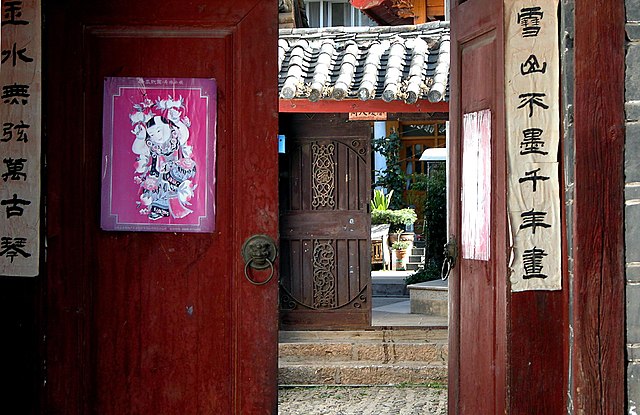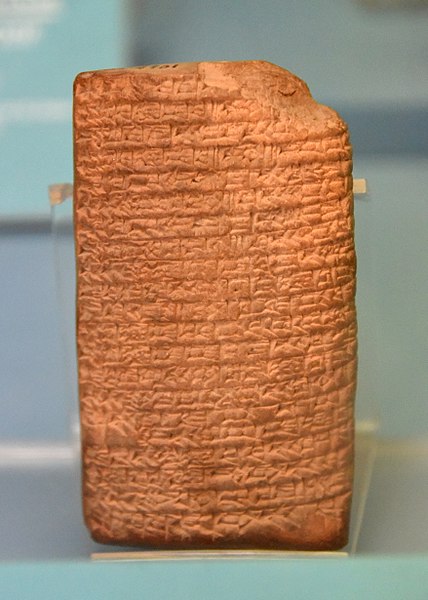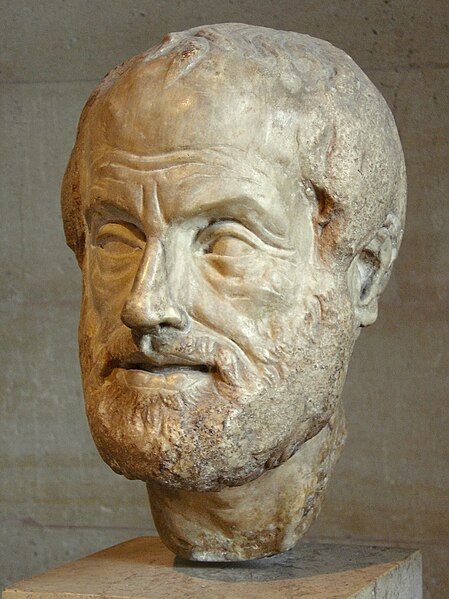Chinese poetry is poetry written, spoken, or chanted in the Chinese language, and a part of the Chinese literature. While this last term comprises Classical Chinese, Standard Chinese, Mandarin Chinese, Yue Chinese, and other historical and vernacular forms of the language, its poetry generally falls into one of two primary types, Classical Chinese poetry and Modern Chinese poetry.
"Quatrain on Heavenly Mountain" by Emperor Gaozong
Hand-painted Chinese New Year's dui lian (對聯 "couplet"), a by-product of Chinese poetry, pasted on the sides of doors leading to people's homes, at Lijiang City, Yunnan.
A Tang dynasty era copy of the preface to the Lantingji Xu poems composed at the Orchid Pavilion Gathering, originally attributed to Wang Xizhi (303–361 AD) of the Jin dynasty
Poetry, also called verse, is a form of literature that uses aesthetic and often rhythmic qualities of language − such as phonaesthetics, sound symbolism, and metre − to evoke meanings in addition to, or in place of, a prosaic ostensible meaning. A poem is a literary composition, written by a poet, using this principle.
The oldest known love poem. Sumerian terracotta tablet#2461 from Nippur, Iraq. Ur III period, 2037–2029 BCE. Ancient Orient Museum, Istanbul
The philosopher Confucius was influential in the developed approach to poetry and ancient music theory.
An early Chinese poetics, the Kǒngzǐ Shīlùn (孔子詩論), discussing the Shijing (Classic of Poetry)
Aristotle







